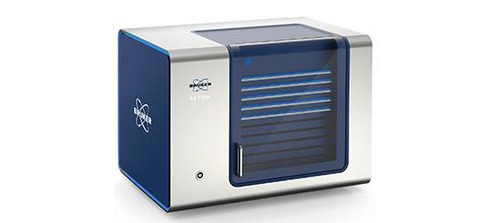
Bruker’s high Performance S4 TStar TXRF Spectrometer, with new lower detection limits, provides a real alternative to Inductively Coupled Plasma Mass Spectrometry (ICP-MS) for ultra-trace element analysis.
The analysis of trace elements for quality control (QC) and health and safety is important in many industries, including food production, pharmaceuticals and environmental regulation.
Total reflection X-ray fluorescence (TXRF) spectroscopy is a method with proven worth for trace element analysis in a wide range of samples. Now, with their S4 TStar High Performance TXRF Spectrometer, Bruker have improved TXRF detection limits, offering the lowest detection limits in the sub-ppb range making the S4 TStar ideal for functions such as the detection of sub-ppm catalyser elements in active pharmaceutical ingredients and additives.
Bruker also recommend the instrument for activities such as food fraud prevention in globalised supply chain, according to FAO/WHO standards, and direct measurement of contaminants in the low ppb range in slurries, effluents and wastewater.
The improvements Bruker have engineered in detection limits have been introduced alongside simplified routine operations and further automatic QC procedures and useful software routines. It also has a high capacity of 90 samples and a selection of sample trays and preparation tools, which help make it such a versatile tool for the analysis on samples on different reflective carrier and ideal for continuous multi-m user operation.
Reduced airflow and integrated sample housing minimises sample contamination, while sample quality can be ensured via a magnified image from the CCD camera, which also archives sample images for later review.
By providing rapid and cost-effective high performance TXRF Bruker’s compact benchtop S4 TStar now provides a real alternative to Inductively Coupled Plasma Mass spectrometry (ICP-MS) for ultra-trace element analysis.
The versatility offered by the S4 TStar, and the guaranteed data quality, makes it proper competition, especially as ICP-MS requires fully dissolved samples.
Want to know more about the S4 TStar? Take a look at the latest webinar here.





